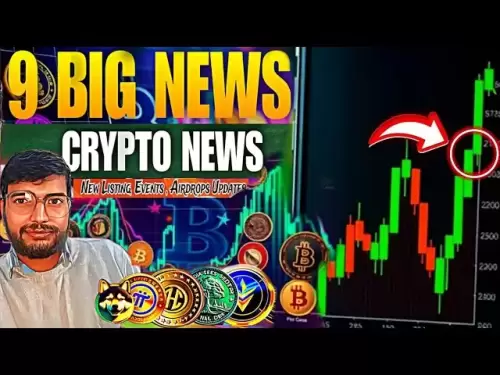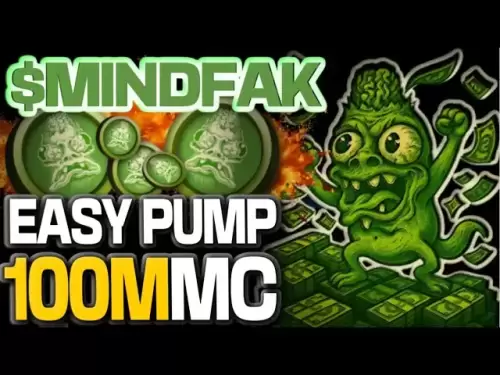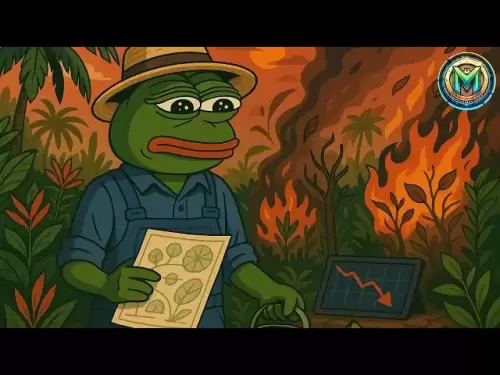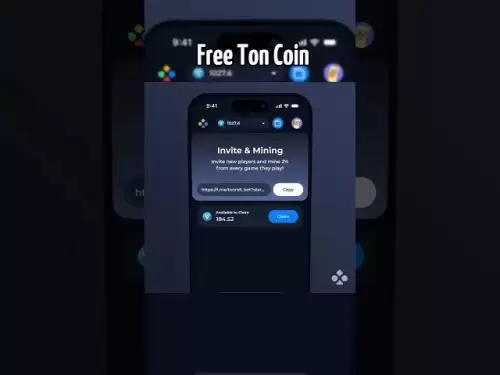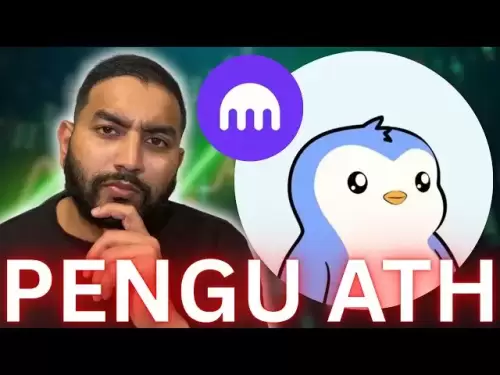-
 Bitcoin
Bitcoin $119000
0.17% -
 Ethereum
Ethereum $3664
-2.12% -
 XRP
XRP $3.229
-7.77% -
 Tether USDt
Tether USDt $1.001
0.02% -
 BNB
BNB $783.2
-1.48% -
 Solana
Solana $191.3
-5.26% -
 USDC
USDC $1.000
0.03% -
 Dogecoin
Dogecoin $0.2450
-7.74% -
 TRON
TRON $0.3115
-1.61% -
 Cardano
Cardano $0.8229
-6.80% -
 Hyperliquid
Hyperliquid $44.17
-2.93% -
 Stellar
Stellar $0.4343
-7.23% -
 Sui
Sui $3.792
-4.09% -
 Chainlink
Chainlink $18.38
-5.73% -
 Hedera
Hedera $0.2491
-7.79% -
 Bitcoin Cash
Bitcoin Cash $518.1
-1.51% -
 Avalanche
Avalanche $24.13
-5.84% -
 Litecoin
Litecoin $113.9
-5.41% -
 UNUS SED LEO
UNUS SED LEO $8.974
-0.21% -
 Shiba Inu
Shiba Inu $0.00001400
-7.98% -
 Toncoin
Toncoin $3.215
-2.09% -
 Ethena USDe
Ethena USDe $1.001
0.03% -
 Polkadot
Polkadot $4.178
-6.84% -
 Uniswap
Uniswap $10.38
-3.05% -
 Monero
Monero $317.8
-1.85% -
 Bitget Token
Bitget Token $4.733
-1.94% -
 Pepe
Pepe $0.00001293
-8.20% -
 Dai
Dai $1.000
0.02% -
 Aave
Aave $292.8
-4.74% -
 Bittensor
Bittensor $430.1
-3.67%
What is the metaverse and how do NFTs fit in?
NFTs enable true digital ownership and interoperability in the metaverse, allowing users to buy, sell, and use unique assets across virtual platforms securely via blockchain technology.
Jul 13, 2025 at 11:01 am
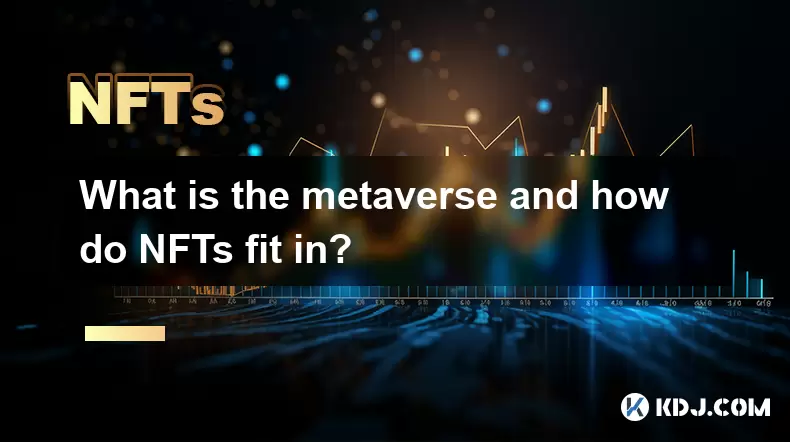
Understanding the Concept of the Metaverse
The metaverse refers to a collective virtual shared space, created by the convergence of virtually enhanced physical reality and persistent virtual spaces. It includes the sum of all virtual worlds, augmented reality, and the internet. In simpler terms, it is an immersive digital environment where users can interact with each other and digital objects in real-time. Unlike traditional online platforms, the metaverse aims to be fully decentralized, allowing for true ownership of digital assets and experiences.
A key component of this vision is the use of blockchain technology, which underpins many of the systems that enable secure, transparent, and trustless interactions within the metaverse. This is where NFTs (Non-Fungible Tokens) come into play, offering a way to represent unique digital items and properties within these virtual environments.
The Role of NFTs in Digital Ownership
NFTs are cryptographic tokens on a blockchain that represent ownership of a unique item or piece of content. These can include digital art, music, videos, virtual real estate, avatars, and even in-game items. Because each NFT is distinct and cannot be replicated, they offer a solution to the problem of scarcity and provenance in digital environments.
In the context of the metaverse, NFTs serve as proof of ownership for virtual goods. For example, if a user purchases a piece of virtual land in a platform like Decentraland or The Sandbox, that ownership is recorded via an NFT on the blockchain. This ensures that no central authority can arbitrarily revoke or alter the ownership, making digital property rights more robust and transferable across different platforms.
How NFTs Enable Interoperability Across Virtual Worlds
One of the most promising aspects of NFT integration in the metaverse is interoperability — the ability to use the same digital assets across multiple platforms. Traditional gaming and virtual environments often restrict in-game items to their own ecosystems. However, with NFTs, users can take their avatars, clothing, tools, or virtual currency from one metaverse world to another, provided both platforms support the same blockchain standards.
This cross-platform functionality is achieved through standardized token protocols such as ERC-721 and ERC-1155, which define how NFTs behave on blockchains like Ethereum. Developers building metaverse applications can integrate these standards to ensure seamless asset movement, fostering a more unified and user-centric digital experience.
Monetization and Economic Systems Powered by NFTs
The economic model of the metaverse heavily relies on user-generated content and peer-to-peer transactions. NFTs enable creators to monetize their digital creations directly without intermediaries. Artists, designers, developers, and even casual users can mint NFTs representing their work and sell them in decentralized marketplaces.
Moreover, smart contracts embedded in NFTs allow creators to earn royalties every time their asset is resold. This creates sustainable income streams for creators within the metaverse. Additionally, virtual real estate trading, fashion design, and event hosting have become viable economic activities facilitated by NFT-backed assets.
Practical Use Cases of NFTs in Existing Metaverse Platforms
Several platforms are already leveraging NFTs within their metaverse ecosystems:
- Decentraland: Users buy and sell virtual plots of land as NFTs, build interactive scenes, and host events.
- The Sandbox: A user-generated game platform where players can create, own, and monetize their gaming experiences using NFTs.
- Axie Infinity: A blockchain-based game where players collect, breed, and battle creatures called Axies, represented as NFTs.
- Spatial: A virtual gallery platform where artists can showcase their NFT collections in 3D environments.
These examples illustrate how NFTs are not just speculative assets but functional components of virtual economies and social experiences.
How to Acquire and Use NFTs in the Metaverse
To begin interacting with NFTs in the metaverse, follow these steps:
- Set up a cryptocurrency wallet like MetaMask or Trust Wallet to store your NFTs and interact with blockchain platforms.
- Purchase cryptocurrency (such as ETH, MATIC, or SAND) to fund your wallet and pay for transactions.
- Explore NFT marketplaces such as OpenSea, Rarible, or platform-specific ones like Decentraland’s marketplace.
- Browse, purchase, or mint NFTs relevant to your interests — whether it's avatar wearables, land parcels, or digital art.
- Connect your wallet to metaverse platforms to import and use your NFTs within virtual environments.
Each step requires careful attention to gas fees, network compatibility, and wallet security practices to ensure a smooth and safe experience.
Frequently Asked Questions
Q: Can I lose my NFTs in the metaverse?
Yes, if you lose access to your wallet or private keys, you will permanently lose access to your NFTs. It is crucial to back up recovery phrases and avoid sharing sensitive information.
Q: Are all NFTs compatible with every metaverse platform?
No, compatibility depends on the blockchain and token standards used by each platform. Always check whether a specific NFT format is supported before purchasing.
Q: Do NFTs have real-world value?
While NFTs are digital assets, they can be bought and sold for real money. Their value is determined by market demand, utility within platforms, and perceived uniqueness.
Q: How do I verify the authenticity of an NFT?
Blockchain transparency allows anyone to trace the origin and ownership history of an NFT. Reputable marketplaces also feature verified creators and listings.
Disclaimer:info@kdj.com
The information provided is not trading advice. kdj.com does not assume any responsibility for any investments made based on the information provided in this article. Cryptocurrencies are highly volatile and it is highly recommended that you invest with caution after thorough research!
If you believe that the content used on this website infringes your copyright, please contact us immediately (info@kdj.com) and we will delete it promptly.
- XRP, Solana, and Institutional Adoption: A New Era for Crypto?
- 2025-07-24 11:10:12
- Dogecoin, Remittix, and Crypto Protocols: The Evolution of Digital Finance
- 2025-07-24 10:50:12
- BlockDAG, Hedera, and Stellar: Charting the Course for Crypto's Future
- 2025-07-24 10:50:12
- BlockDAG's No-Vesting Edge: Can It Outpace Cardano's Price?
- 2025-07-24 11:10:12
- South Korea's Credit Card Industry Embraces Stablecoin Regulations: A New Era?
- 2025-07-24 10:30:12
- Bitcoin, SHIB, and Institutional Momentum: Decoding Crypto's 2025 Trajectory
- 2025-07-24 11:15:12
Related knowledge
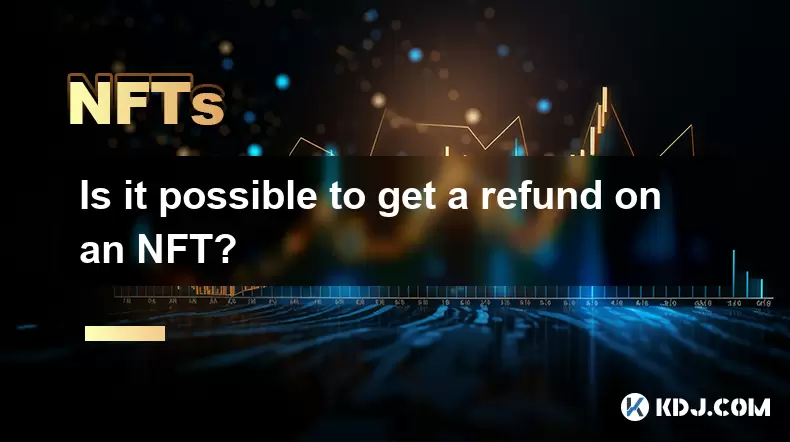
Is it possible to get a refund on an NFT?
Jul 21,2025 at 08:35pm
Understanding NFT Transactions and RefundsWhen you purchase an NFT (Non-Fungible Token), the transaction is typically recorded on a blockchain, making...
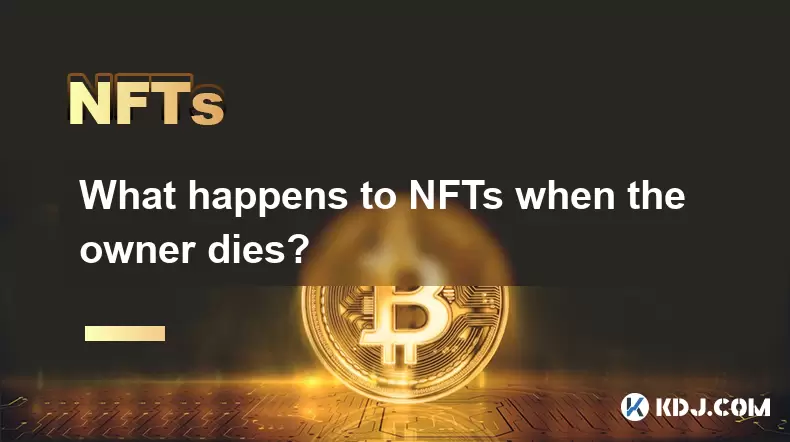
What happens to NFTs when the owner dies?
Jul 22,2025 at 02:43pm
Legal Ownership and Digital AssetsWhen an individual owns NFTs, the question of what happens to these assets upon their death is a pressing one. NFTs ...
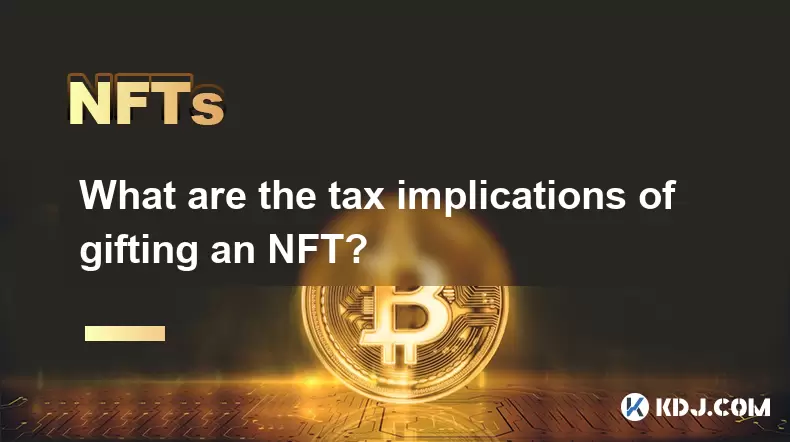
What are the tax implications of gifting an NFT?
Jul 19,2025 at 04:21am
Understanding the Basics of NFT GiftingGifting a Non-Fungible Token (NFT) involves transferring ownership from one individual to another without recei...
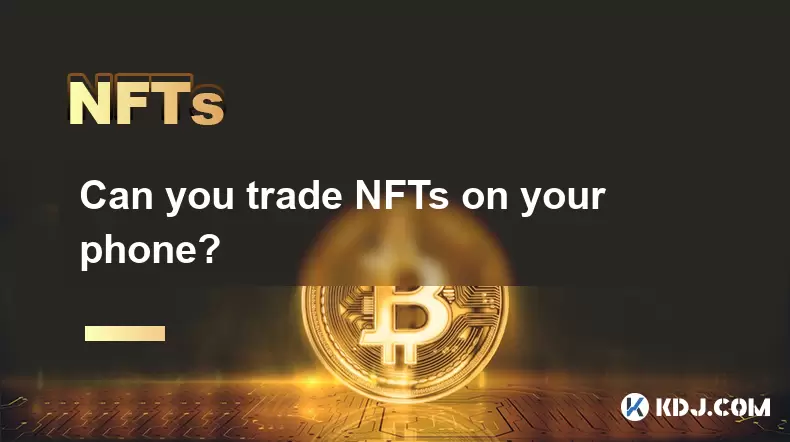
Can you trade NFTs on your phone?
Jul 18,2025 at 04:29am
Trading NFTs on Mobile DevicesYes, you can trade NFTs on your phone, and the process has become increasingly streamlined thanks to a variety of mobile...
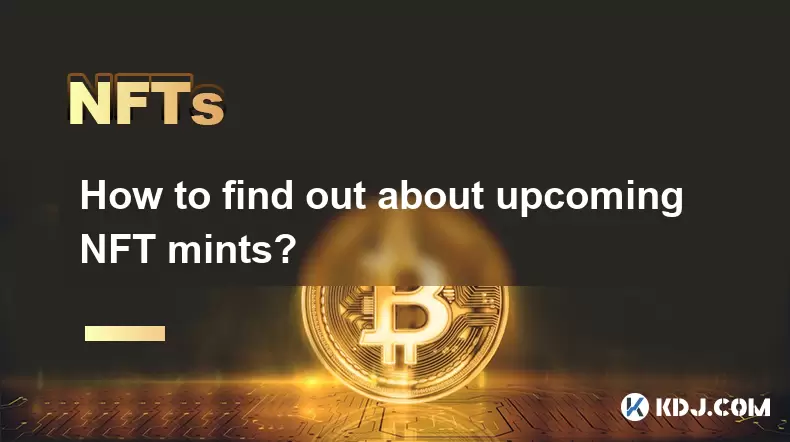
How to find out about upcoming NFT mints?
Jul 18,2025 at 11:50am
Exploring NFT Minting OpportunitiesUnderstanding the landscape of upcoming NFT mints is crucial for collectors, investors, and creators who wish to st...
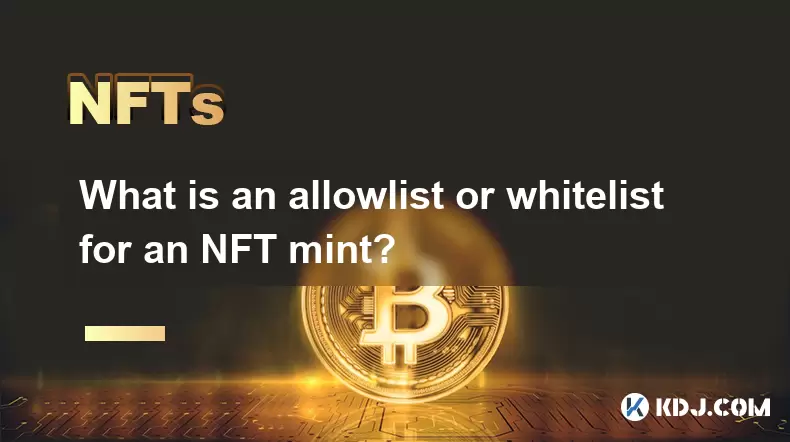
What is an allowlist or whitelist for an NFT mint?
Jul 20,2025 at 07:14pm
Understanding the Concept of an Allowlist for NFT MintingAn allowlist, also commonly referred to as a whitelist, is a mechanism used in the NFT mintin...

Is it possible to get a refund on an NFT?
Jul 21,2025 at 08:35pm
Understanding NFT Transactions and RefundsWhen you purchase an NFT (Non-Fungible Token), the transaction is typically recorded on a blockchain, making...

What happens to NFTs when the owner dies?
Jul 22,2025 at 02:43pm
Legal Ownership and Digital AssetsWhen an individual owns NFTs, the question of what happens to these assets upon their death is a pressing one. NFTs ...

What are the tax implications of gifting an NFT?
Jul 19,2025 at 04:21am
Understanding the Basics of NFT GiftingGifting a Non-Fungible Token (NFT) involves transferring ownership from one individual to another without recei...

Can you trade NFTs on your phone?
Jul 18,2025 at 04:29am
Trading NFTs on Mobile DevicesYes, you can trade NFTs on your phone, and the process has become increasingly streamlined thanks to a variety of mobile...

How to find out about upcoming NFT mints?
Jul 18,2025 at 11:50am
Exploring NFT Minting OpportunitiesUnderstanding the landscape of upcoming NFT mints is crucial for collectors, investors, and creators who wish to st...

What is an allowlist or whitelist for an NFT mint?
Jul 20,2025 at 07:14pm
Understanding the Concept of an Allowlist for NFT MintingAn allowlist, also commonly referred to as a whitelist, is a mechanism used in the NFT mintin...
See all articles





















